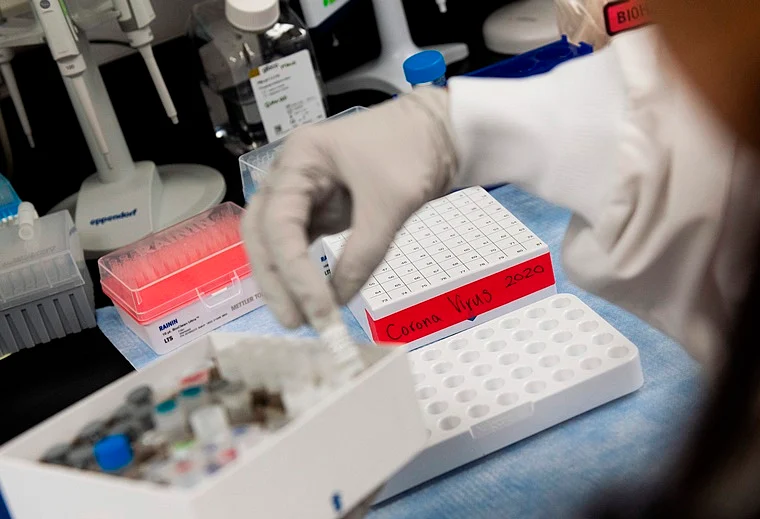Houston: Environmental conditions affect the stability of the novel coronavirus in human nasal mucus and sputum, according to a study which suggests there might be seasonal outbreaks of COVID-19 in the post-pandemic period if the weather favours the spread of the disease.
Researchers, including Jeremiah Matson from Marshall University in the US, noted that the novel coronavirus, SARS-CoV-2 is less stable at higher humidity and warmer temperatures.
In the study, published in the journal Emerging Infectious Diseases, SARS-CoV-2 was mixed with human nasal mucus and sputum specimens, which were then exposed to three different sets of temperature and humidity for up to seven days.
The scientists said samples were collected throughout the study and analysed for the presence of infectious virus as well as the viral genetic material RNA alone, which is not infectious.
They said viral RNA was consistently detectable throughout the seven-day study, while infectious virus was detectable for up to nearly 12-48 hours, depending on the environmental conditions.
"The virus is more stable at low-temperature and low-humidity conditions, whereas warmer temperature and higher humidity shortened half-life," the scientists noted in the study.
Due to the reduced surface stability of SARS-CoV-2 in human nasal mucus and sputum in warmer and more humid conditions, the scientists believe there may be decreased virus transmission in these environmental scenarios.
"Climatic influence on SARS-CoV-2 transmission rates might eventually drive seasonal outbreak dynamics in a postpandemic period," the researchers noted.
In another study, published this month in Emerging Infectious Diseases, a team of researchers including Matson evaluated the effectiveness of N95 respirator decontamination and reuse against SARS-CoV-2. They found that vaporised hydrogen peroxide and ultraviolet light were the most effective in decontaminating the masks if proper fit and seal were maintained. "The COVID-19 pandemic has been a sobering reminder that infectious diseases continue to be a major public health threat and require sustained research commitment," Matson said.











